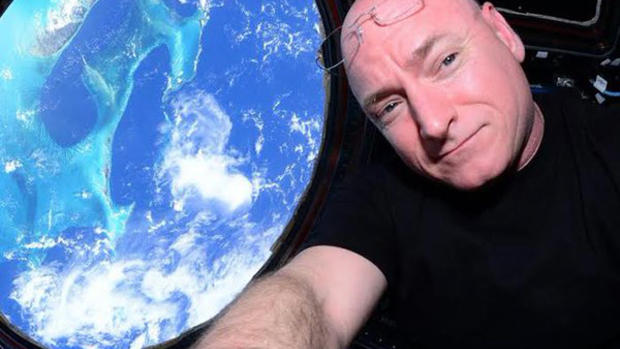What a year in space means for Scott Kelly's health
Astronaut Scott Kelly returns to Earth on Tuesday night after his record-setting mission, but have you ever wondered what almost a year in space does to a person's body, and how astronauts reacclimate to terrestrial life?
Kelly will first touch down in Kazakhstan, then fly back to the Johnson Space Center in Houston. But before he returns home to his family, he will undergo extensive testing to evaluate the toll of all those months in zero gravity and help him readapt to life on Earth.
Derrick Pitts, chief astronomer and planetarium director for the Franklin Institute of Philadelphia, said that as soon as Kelly lands, doctors will do thorough tests to evaluate his cardiovascular functioning.
"His heart has not had to work so hard because it's not under the influence of gravity," Pitts told CBS News. "So there will be some work to see how strong his heart muscle is and check and see what the resilience is of his blood vessels."
Doctors will also evaluate his musculature and bone density. "Even though he exercised quite a bit while he was in space, he's still not under 1G so there's going to be testing for that," Pitts said.
Without the force of gravity, bones stop producing bone cells and become more brittle, Pitts explained. He noted that Kelly is not in any danger because of these changes, but doctors want to find out to what degree there have been changes to the inner bone structure.
Kelly's eyes will also be extensively checked. "Under zero-G conditions there have been some deformation of the eye structure that has caused some concern among doctors as they look at astronauts coming back from space," Pitts said.
As for how Kelly can expect his body to feel upon returning to Earth, Pitts said it will take some time for him to get his "Earth legs" back.
"When they first come back, in this case, I think Scott... won't be up walking around a tremendous amount to begin with. It'll take him a day or so to get used to that again," he said.
One of the key goals of Kelly's mission has been to identify how an extended period of time in space affects the human body. Scientists are using Kelly's twin brother Mark, a retired astronaut, as a control subject to compare him to.
"They're going to look at his brother who's remained here on Earth and look at him to see what kinds of differences may have taken place," Pitts said.
One of the things they will explore is whether there are changes in Scott's cells or DNA due to space radiation.
"The space environment is a nasty environment," Pitts said. "It's not very good for us to be in at all. Here on Earth, our atmosphere and our magnetic field protect us very well from the radiation that is generated by our sun, our star and that radiation pervades all of the environment of the solar system. Scott has had a higher level of exposure to that over the last 340 days than his brother Mark has had."
Finally Pitts said, there are the psychological effects of spending almost a year in space to consider.
"Imagine you were in a station wagon with your family traveling for one whole year and you can't roll down the windows, you can't get out and you're stuck there," he said. "That psychological piece is really important to consider because long duration trips in space are going to require that you have the psychological profile and capability to be able to work with a small group and be in a closed space for a long time."
